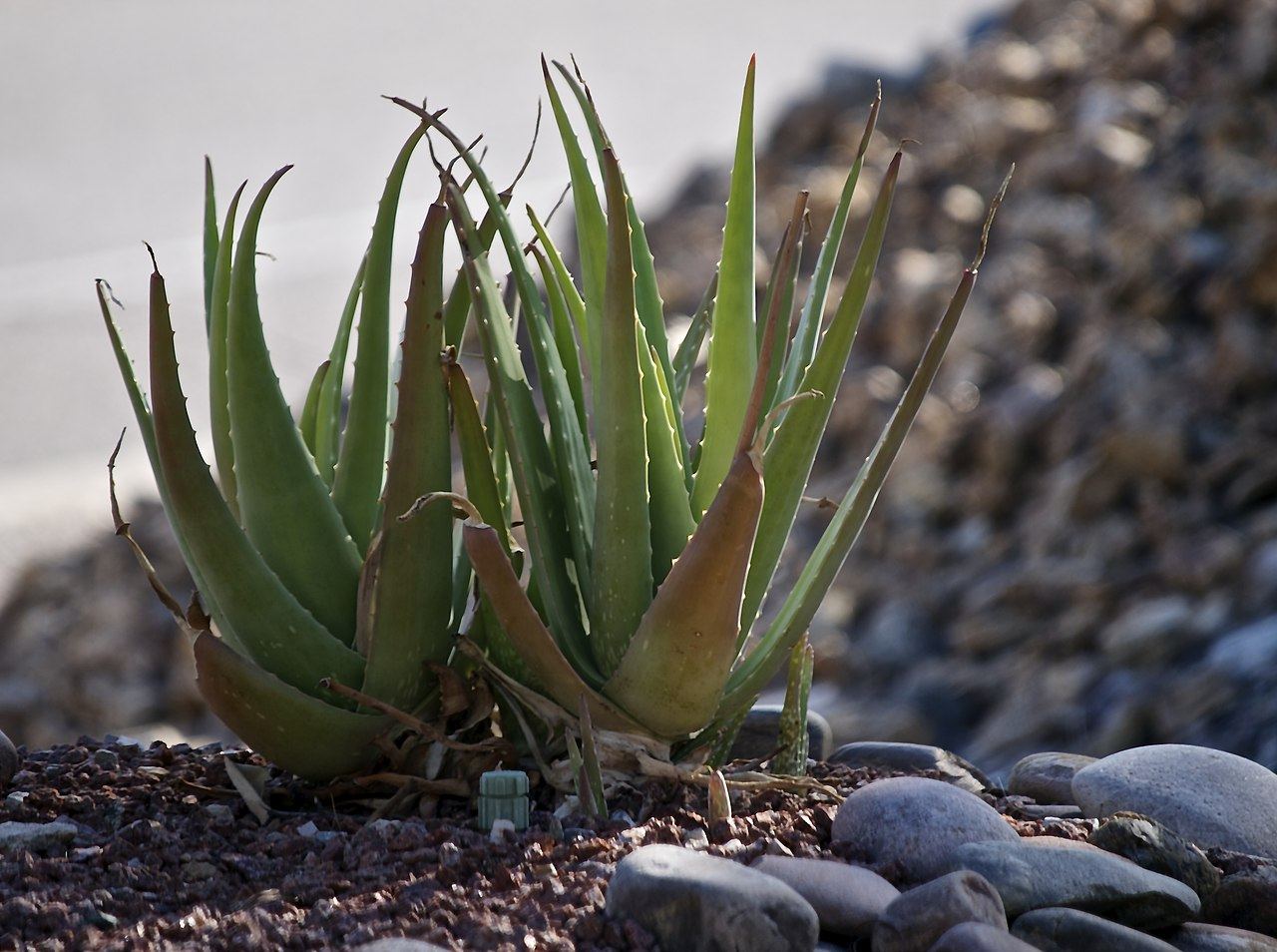Aloe vera is a powerful plant that offers many benefits to people, particularly those searching for natural skincare alternatives. In this article, we discuss the benefits of the aloe vera plant and how it works to improve your skin. Read on!
Soothes Sunburn
Aloe vera forms — such as Aloe Barbadensis (Aloe vera) leaf juice — are great for soothing sunburns and skin injuries. Aloe vera increases collagen synthesis and cross-linking, which speeds up the healing of wounds and reduces scar tissues.
On top of that, it contains aloin and anthraquinones. These chemicals have anti-inflammatory and antioxidant benefits that promote healing and reduce pain.
One little caveat though: Aloe vera is only advisable for mild-to-moderate first- and second-degree burns. More severe burs need the attention of a professional and should be treated in a medical facility.
Soothes Skin Conditions
Psoriasis is an inflammatory condition that causes itchy red and scaly patches. Aloe vera can help such a condition, thanks to the plant’s anti-inflammatory properties.
The same goes for eczema, which causes the skin to itch and become red. It also makes the skin more prone to fungal and bacterial infections.
Aloe vera has antiseptic, anti-fungal, antibacterial, and anti-inflammatory properties. They can hydrate eczema and protect it from possible contaminants.
Moisturizes the Skin
Aloe vera has humectants — a chemical that attracts water from the air to the skin. This makes the plant beneficial for people with dry skins more than those with other skin types.
The plant also has mucopolysaccharides that bind moisture into the skin. It sticks together epidermal skin cells, which results in better skin integrity and software skin.
Moreover, unlike other regular skin care products, Aloe vera gel doesn’t leave a greasy film on the face and the skin. It does the opposite: it unclogs pores and softens your skin.
Slows Down Signs of Aging
Aloe vera contains vitamins C and E. As such, it helps prevent the formation of free radicals or molecules that cause cell damage.
The plant also has salicylic acid, which serves as a gentle exfoliant. Once the dead skin cells are eliminated, skincare products can better penetrate the skin and produce more effective results.
Helps Hair Growth
Aloe vera gel helps activate new hair growth. It does that by improving blood circulation to the scalp while providing essential minerals and vitamins.
On top of that, the plant contains proteolytic enzymes that help repair dead skin cells on your scalp. As a result, it’s perfect for treating scalp and hair problems among men and women. It’s also helpful in preventing dandruff since it heals dry skin, prevents excessive oil, and prevents fungal infections.
Manages Acne
Apart from salicylic acid, aloe vera also contains urea, nitrogen, phenols, sulfur, and cinnamic acid — all of these prevent the growth of bacteria, fungi, viruses, and bacteria.
The plant’s anti-inflammatory capabilities also suppress bacteria that cause acne. Meanwhile, the salicylic acid sheds dead skin cells from the outer part of your skin, decreasing inflammation and redness.
Fades Hyperpigmentation
Hyperpigmentation causes dark spots on the skin. This can be caused by a variety of reasons, such as acne, sun exposure, or aging. They’re stubborn, but the aloesin in the aloe vera plant can lighten things up.
According to research, aloesin is effective in treating UV-induced and hyperpigmentation caused by acne. Another study found that topically applied aloesin can directly inhibit the overproduction of melanin, which causes hyperpigmentation.
Side Effects
Generally, aloe vera use doesn’t have any side effects. However, you should always use a patch test before applying it to a larger portion of your skin. Some users may experience redness, stinging, and burning sensation. In particularly sensitive individuals, generalized dermatitis may occur.

